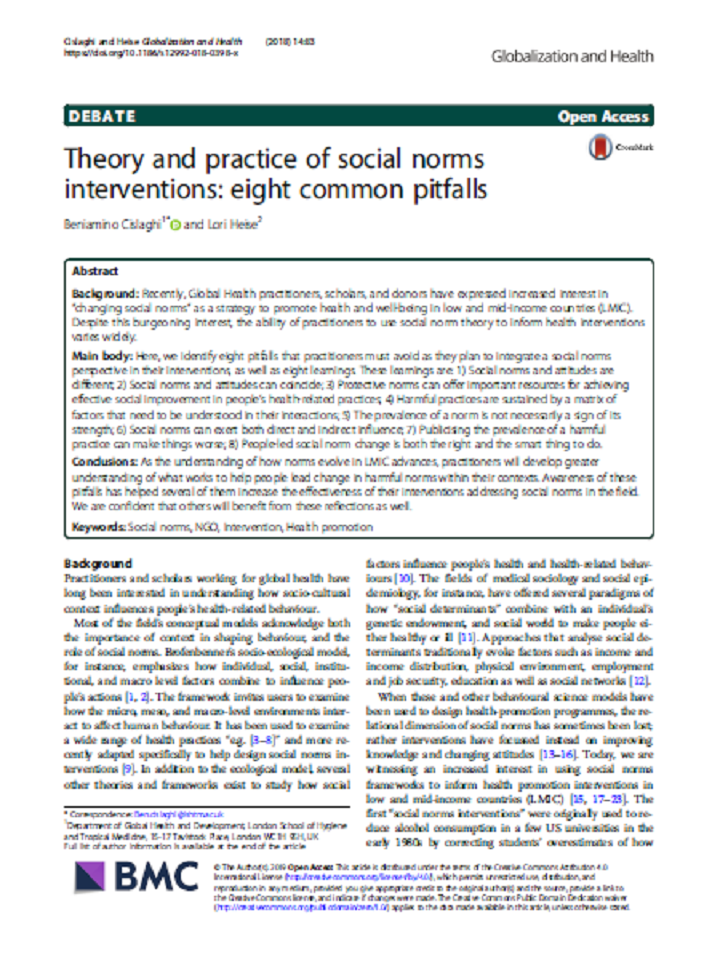Theory and Practice of Social Norms Interventions: Eight Common Pitfalls Cislaghi, B., Heise, L. (2018)
Recently, Global Health practitioners, scholars, and donors have expressed increased interest in “changing social norms” as a strategy to promote health and well-being in low and mid-income countries (LMIC). Despite this burgeoning interest, the ability of practitioners to use social norm theory to inform health interventions varies widely.
Here, we identify eight pitfalls that practitioners must avoid as they plan to integrate a social norms perspective in their interventions, as well as eight learnings. These learnings are: 1) Social norms and attitudes are different; 2) Social norms and attitudes can coincide; 3) Protective norms can offer important resources for achieving effective social improvement in people’s health-related practices; 4) Harmful practices are sustained by a matrix of factors that need to be understood in their interactions; 5) The prevalence of a norm is not necessarily a sign of its strength; 6) Social norms can exert both direct and indirect influence; 7) Publicising the prevalence of a harmful practice can make things worse; 8) People-led social norm change is both the right and the smart thing to do.
Bibliographic information
Cislaghi, B., Heise, L. (2018). Theory and Practice of Social Norms Interventions: Eight Common Pitfalls Globalization and Health
Filter / Tags
English
Downloads
Theory and Practice of Social Norms Interventions: Eight Common Pitfalls.
Type: application/pdf
Size: 1.8 MB

